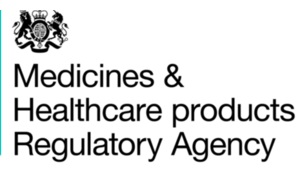-
16th Dec 2016, 12:33 PM
#1
I am absolutely certain that this should be a big worry for the CEO - especially if, God forbid, anything does go wrong. This type of thing has always been a bit of a problem. I recently read a quote from a paper by Rufus Stetson, who was the very much less famous co-author with Philip Levine in their seminal paper of 1939 on anti-D, where he was railing against the way blood group and blood transfusion testing was performed with an "indifferent attitude on the part of those in authority in regulating this most important work to the care of inexperienced and poorly trained persons." (Stetson RE. Causes and prevention of posttransfusion reactions. Surg Clin North Am 1933; 13: 319-345), although I have to say that I have not read the paper myself.
It is slightly different now, in that the regulators (MHRA, through BSQR and EU GMP, UKAS, through their standards on competency and UKTLC with their standards) have specified that such people should be experienced and properly trained, but that their regulations are being openly flaunted by individuals with ultimate responsibility in certain Trusts, such as this CEO. I have NO legal training whatsoever, but, if the worst did happen, and a patient died as the result of a laboratory error, to my mind, the CEO MAY be in danger of being charged with Corporate Manslaughter?
-
16th Dec 2016, 09:13 PM
#2
Unsure now how to proceed, as encouraging better incident reporting to help with lab Capacity Plans may backfire. Really down to the regulators to come up with a plan.
-
17th Dec 2016, 10:38 AM
#3
Is this encouragement made on the basis that more incident reporting will mean that the powers that be have to do something about it?
-
17th Dec 2016, 02:56 PM
#4
Partly- the main purpose being to correct all errors and build a picture/ trend of what is happening in the lab for further actions needed and to support any business cases for staff/ equipment resourcing. It is well known that an organisation with a good reporting culture not only reports serious patient safety serious incidents but many low level, no harm events, and is trying to continuously learn and improve, and working towards creating a Just Culture, where ultimately everyone wins.
Correcting these problems properly also releases time ( which we all need more of!) to do the rest of the job, rather than constantly fire-fighting.
Last edited by Rashmi; 17th Dec 2016 at 02:58 PM.
Reason: .
-
21st Dec 2016, 02:58 PM
#5
Perhaps consider producing another DoH, Health Service Circular as per HSC 1998, 2002 and 2007 on Better Blood Transfusion. Resourcing for these was more successful as the documents were directed at Trust boards and came down to Pathology Managers and HTCs for review and accountability to implement:
Suggestions to include:
- Transfusion laboratory managers must report concerns with staffing levels and skill mix via a formal process to the Trust (via incident reporting/ HTC/ PBM committees).
- Staff must be encouraged to report minor as well as serious transfusion related incidents and events that may occur in both the clinical and laboratory areas, without censure.
- As the Transfusion lab provides both a diagnostic and therapeutic service, in an increasingly changing environment, the training needs are more stringent, and this should be reflected in staffing requirements .
- The laboratory must work towards meeting professional educational, training and knowledge requirements as described in UKTLC standards and all other BCSH guidelines, as well as maintaining compliance with the BSQR, EU GMP and ISO 15189.
Would really appreciate ideas from others about this. Do you think it is achievable/ realistic etc??
Many thanks
Last edited by Rashmi; 21st Dec 2016 at 02:59 PM.
Reason: correction
-
11th Jan 2017, 10:24 AM
#6
The MHRA promote an open reporting culture as an essential pillar of an effective quality system and would be very concerned if staff were penalised for bringing issues to the fore.
If such events arise, can I suggest you advise via the NHS Whistle blowers email (enquiries@wbhelpline.org.uk) in the first instance. If that fails you could report to the MHRA as a whistle blower by emailing MHRA customer services (info@mhra.gsi.gov.uk) and providing details. Whistle Blower communications with the MHRA are treated in complete confidentiality.
-
11th Jan 2017, 01:46 PM
#7
Thank you for your reply.
Having discussed this with folks, the opinion is that staff still feel unsafe and lack confidence to whistle blow, regardless of some excellent hospital policies around, and the presumed confidentiality of the process,and any formal means of reporting concerns. It is very easy to trace back to the whistle blower or to assume (correctly or not) the source, and for repercussions on the blood bank manager and team.
Whistle blowing is also a very reactive process rather than building this within the QMS framework.
Many thanks
-
17th Feb 2017, 10:18 PM
#8
You should also be raising incidents when you can't meet audit schedules or for eg cleaning schedules or even when your documents expire and have missed review dates. These might be early signals that there are capacity issues
also and with respect to whistleblowing and escalation of concerns. I would recommended building a relationship with clinical governance teams and inviting representatives to the htt. Use that system to escalate issues. Use the htc route as well ..get your users on board. get staffing on the risk Register
Last edited by EClarke; 17th Feb 2017 at 10:33 PM.
 Posting Permissions
Posting Permissions
- You may not post new threads
- You may not post replies
- You may not post attachments
- You may not edit your posts
-
Forum Rules





